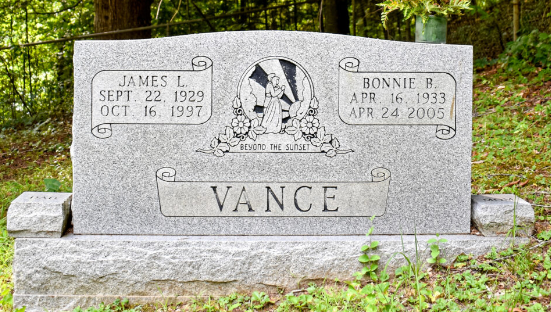Culture
J.D. Vance and the Ashes of Our Fathers
And Isaac gave up the ghost, and died, and was gathered unto his people, being old and full of days: and his sons Esau and Jacob buried him. (Genesis 35:29)
At the Republican National Convention last month, J.D. Vance paid homage to his ancestors. He noted that he told his wife when he proposed to her that he came with only law school debt and “a cemetery plot on a mountainside in eastern Kentucky” where he hopes his own family will be laid to rest. Vance went on to say that “there will be seven generations just in that small mountain cemetery plot in eastern Kentucky. Seven generations who have fought for this country, who have built this country, who have made things in this country, and who would fight and die to protect this country if they were asked to.”
It was a moving moment. It was also, according to the press, a terrifying one. D.D. Guttenplan at The Nation called it a “Midwestern-nice version of blood and soil nationalism … inaudible to rootless cosmopolites,” but nonetheless likely to resonate “powerfully with the Appalachian migrants whose descendants make up a crucial voting bloc up and down the Ohio River Valley.” Alex Wagner of MSNBC went further, claiming wildly that the speech was filled with “Easter eggs of white nationalism” and pinpointing as evidence Vance’s desire to be laid to rest with his loved ones.
Wagner strenuously objected to Vance’s description of America as not just an idea but “a group of people with a shared history and a common future” and warned that “the idea of sharing the burial plot” actually “reveals a lot about someone who fundamentally believes in the supremacy of whiteness and masculinity, couched … in a revisitation of his roots.” This, Wagner went on, “is actually revealing about what he thinks matters and who America is, that America is a place for people with his shared Western background … that is the nation of America that he wants to resurrect.”
Leave aside, if you can, the searing stupidity of accusing a father of biracial children of white supremacy. Why is Vance’s desire to be buried with his people so threatening? What is it about his sense of roots and love of place that causes a certain sort of journalist to suffer mental malfunction on live TV? It is difficult not to conclude that this rootedness is recognized, perhaps instinctively, as a threat to the rootlessness upon which the myth of progress depends, which is why his accusers defaulted to weird claims of racism. Vance’s decision to honour his forebears was a potent rebuke to those who insist that we scour history only for their sins.
The truth is that Vance’s heartfelt words were powerful because we instinctively long for connection to our heritage, to know who our people are, and to love them not because they are superior but because they are ours. Identity politics, as Mary Eberstadt has pointed out, is a consequence of the Sexual Revolution smashing the natural tribes filled with siblings, aunts, uncles, and cousins that were once our birthright. The identitarian movements on the Left and Right serve to address this craving, and it is ironic that even the civilizational self-loathing of progressives comes from a desire to join a tribe and acquire an identity.
The desire to honour our ancestors is a natural one, and like J.D. Vance, I am trying to pass it on to my children. My family are relative newcomers to North America, immigrating from the Netherlands after World War II. But I have visited the little cemetery in the village where my grandfather came from several times. Earlier this year, I took my children for the first time. We walked slowly past the headstones through a misting rain, reading the epitaphs of those who shared our surname. I explained how they were related to us and read the Bible passages on their headstones. The two great-uncles who took me there for the first time twenty years ago are now buried here with their people, too. I told my son and daughter about them.
READ THE REST OF THIS ESSAY HERE








